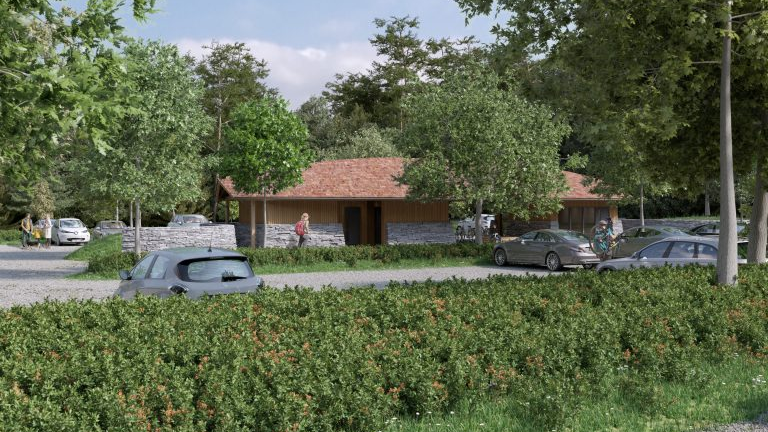Tourist congestion charge 'could ease parking'
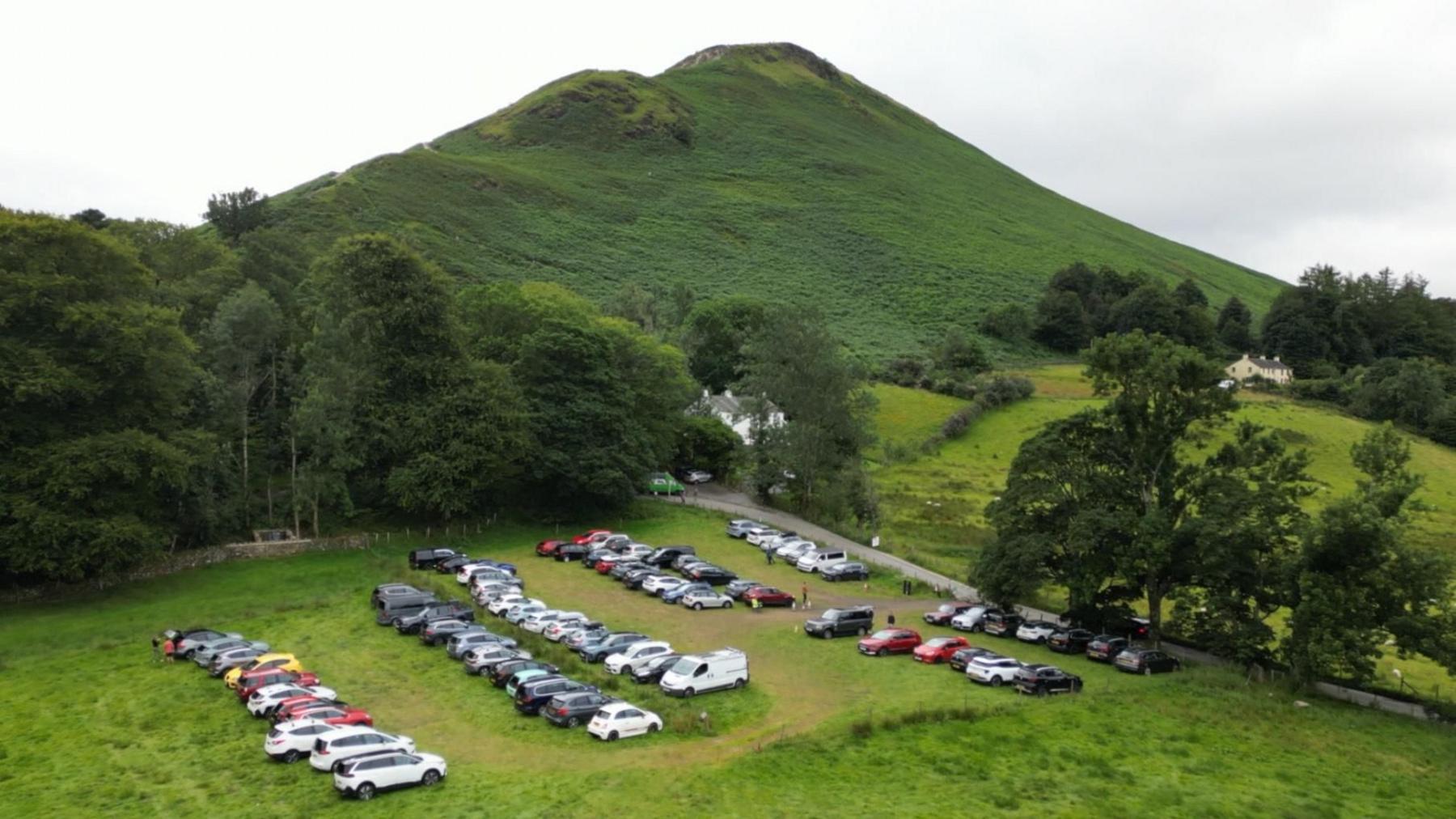
Cupboard Field, near Cat Bells fell, is used as a seasonal car park but planning applications for a permanent facility have been turned down
- Published
A congestion charge for visitors to the Lake District could help ease parking problems in the national park, a think tank leader has suggested.
Overcrowded parking in some areas can stop buses, lorries and emergency vehicles getting past at busy times.
Henri Murison, chief executive of the Northern Powerhouse Partnership, said the revenue could be used to fund better public transport and it "might be one of the answers we need to consider".
Local businessman Mike Anderton said he disagreed as it would "put tourists off".
Mr Murison, whose group looks at ways to boost economic growth in the north of England, said it was important that people could travel to the Lakes "much more easily by public transport", offering an alternative to driving.
The devolution advocate said a future Cumbria mayor could request the power to impose a congestion charge.
"Asking those visitors who may continue to drive their cars to pay a congestion charge, I think that might be one of the answers we need to consider," he said.
'Car park needed'
The idea has been criticised by Mr Anderton, who owns the Swinside Inn in the Newlands Valley
"I don't think it's a good idea, I think it's going to put tourists off," he said.
"A lot of people in the local area make their living off tourists."
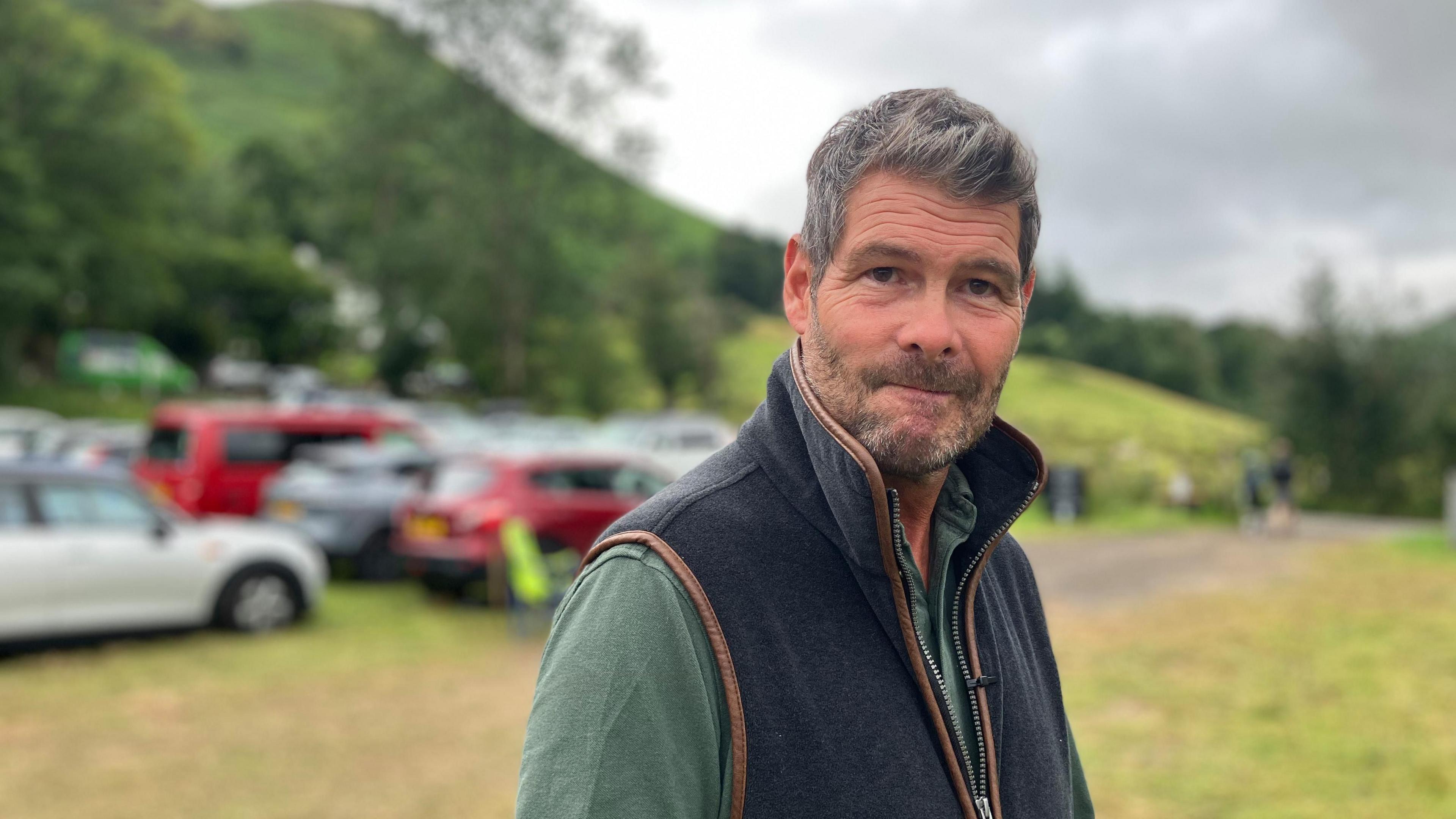
Business owner Mike Anderton said a congestion charge would deter people from travelling to the Lake District
He said too many people parking on the road near Cat Bells fell was a serious problem and had caused the local bus service to be cancelled multiple times.
The solution, he said, was to build a car park.
Mr Anderton has submitted a planning application to create one at Ullock Moss, after a previous proposal at the same site was rejected.
The Lake District National Park Authority (LDNPA) has also previously turned down plans for a permanent facility at Cupboard Field, where Mr Anderton operates a temporary car park for 28 days a year.
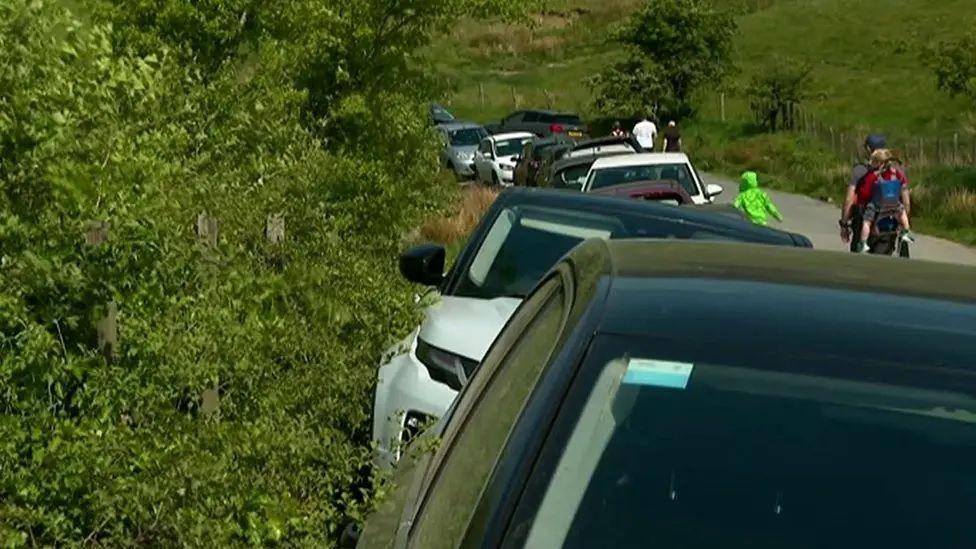
Poorly parked cars have caused problems in the past around parts of the Lake District
Alan Ashby, an opponent of the Ullock Moss scheme from nearby Portinscale, said a car park would not solve the problem.
He said it would lead to "more car visitors coming through the village" on their way to reach it.
This would lead to "more safety issues", he said, with vehicles squeezing through tight spaces to get past each other and parked cars.
Mr Anderton said a car park would not attract more visitors.
Speaking about the wider issue of parking in the Lake District, Emma Moody, a sustainable transport adviser for the LDNPA, said it was "really important we give people alternatives to driving."
She said the authority had helped fund a shuttle bus in Wasdale and was encouraging visitors "to consider travelling by bus if it's convenient for them."
Follow BBC Cumbria on X, external, Facebook, external, Nextdoor and Instagram, external.
Get in touch
Do you have a story suggestion for BBC Cumbria?
Related topics
- Published22 April

- Published9 January
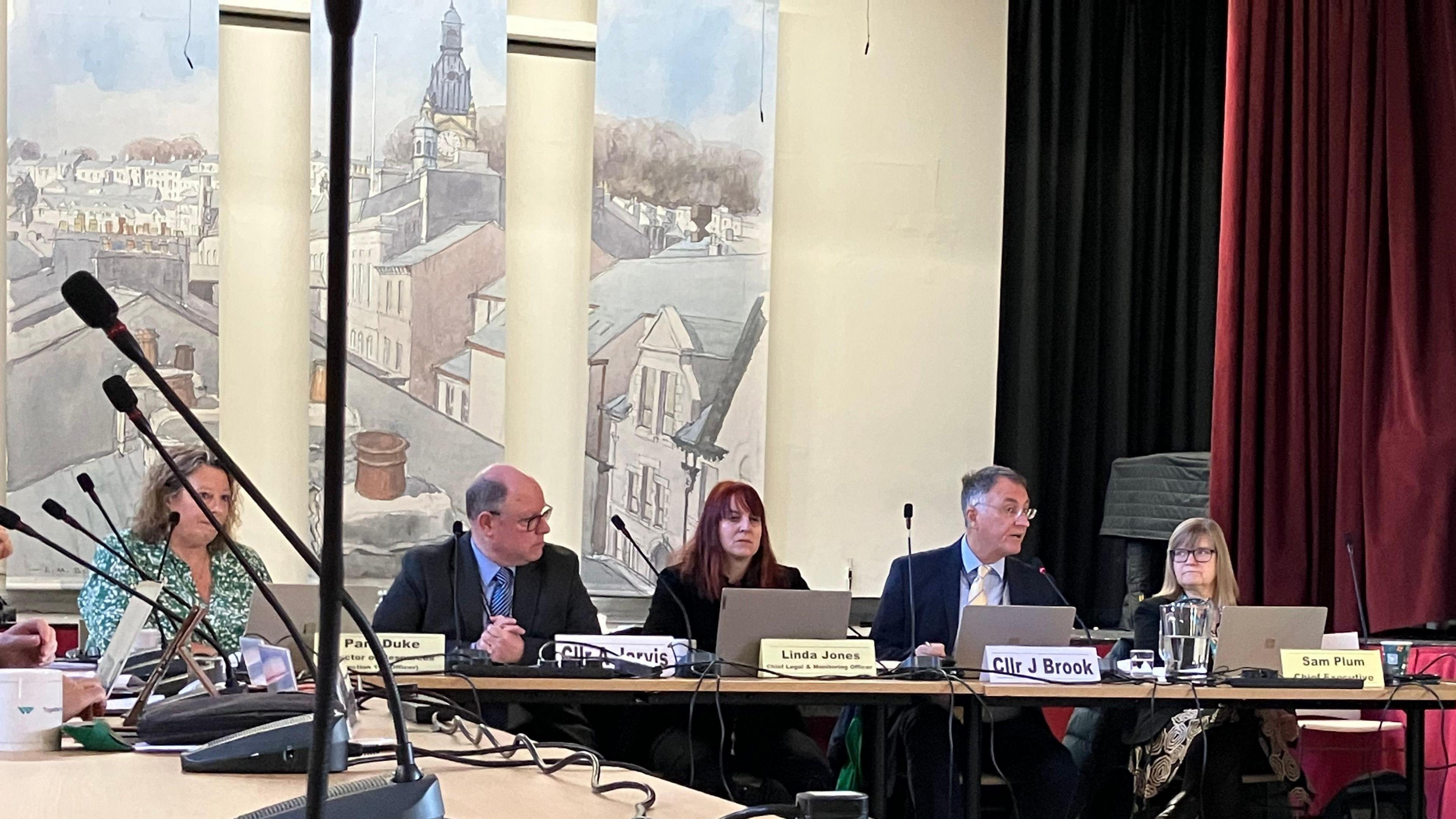
- Published8 September 2024
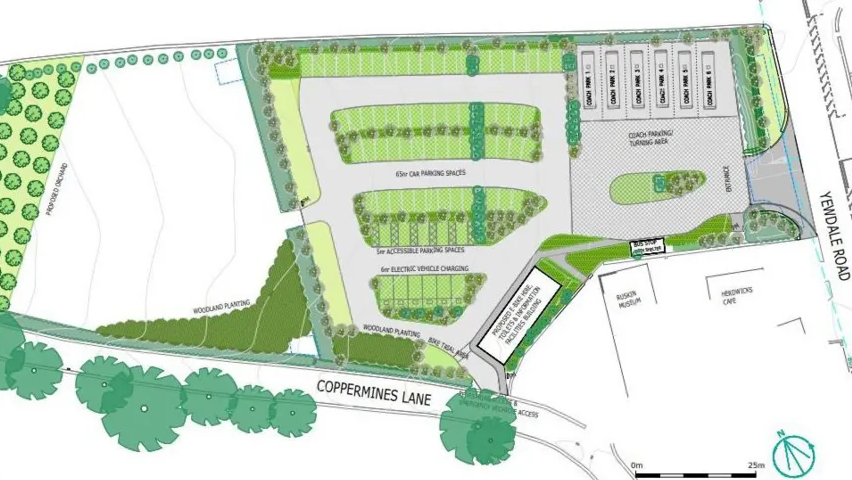
- Published23 October 2024
